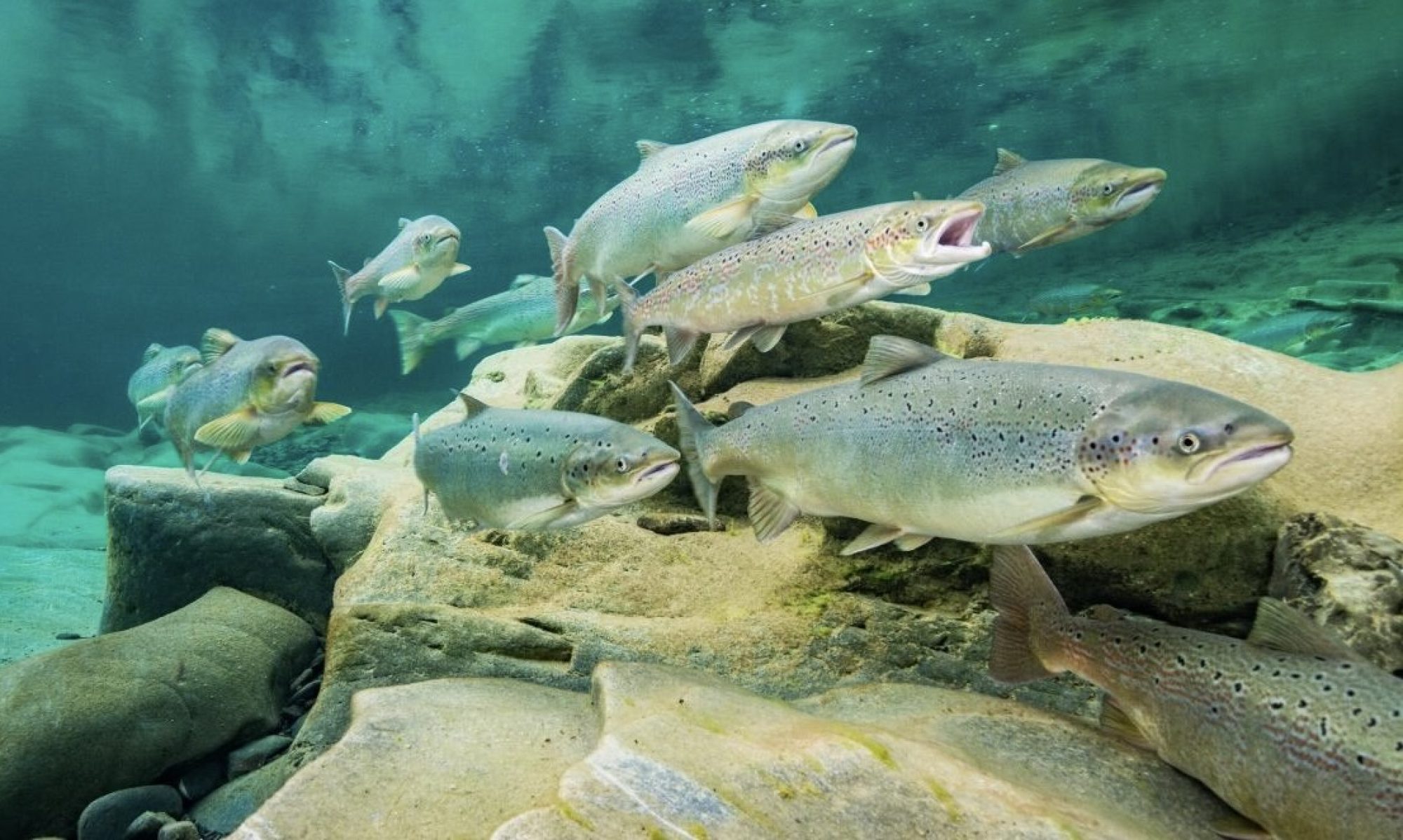Can a better environment produce happier and smarter fish?
Zebrafish are model organisms that are widely used in many different fields but despite their ubiquitous distribution and use, zebrafish welfare has not been extensively studied. In my PhD, I investigated whether being raised in their preferred environment improves zebrafish welfare, confers cognitive benefits, and/or enhances brain development. Read more…
What aspects of the freshwater environment affect the survival of salmonid embryos through winter?
In Eastern Canada, Atlantic salmon embryos incubate in the gravel riverbed from late October to early May, during which time they experience challenging and variable winter conditions. During my MSc, I tracked the survival of wild Atlantic salmon embryos and demonstrated that no single environmental variable has a dominant effect on embryo survival. Instead, I showed that embryo survival is best explained by considering all interacting parts of the winter environment together. Read more…
How can we quickly and accurately assess salmonid embryo development?
In hatcheries and research, water temperature is often used to mathematically predict salmonid embryo development. However, many developmental prediction models in current use are inadequate when water temperatures are close to 0ºC, and are therefore impractical in many coldwater systems. I am working with several researchers to improve these prediction models and develop tools to help validate them. Read more…
When and why did “rock snot” proliferate in an important freshwater Atlantic salmon habitat?
“Rock snot” or “didymo” are common names for Didymosphenia geminata, a type of algae that has been blooming in freshwater streams around the world in recent years. Many ecosystem managers and researchers assumed that didymo was an invasive species, introduced to eastern Quebec in ~2006 when blooms were first noticed. However, my BSc Honours research was among the first to demonstrate that didymo had been present in the region well before that, and blooms were instead more likely triggered by climate change. Read more…
 I’m an Associate Program Officer on Coefficient Giving’s Farm Animal Welfare team with a passion for fish, the English language, and the outdoors. In the past, I’ve researched the behaviour, welfare, and brain development of laboratory zebrafish, and a couple years ago I was an aquatic ecologist. I believe in scientific literacy, the Oxford comma, and the power of the metaphor. This website exists to house my resume and my scientific interests outside my work with Open Philanthropy.
I’m an Associate Program Officer on Coefficient Giving’s Farm Animal Welfare team with a passion for fish, the English language, and the outdoors. In the past, I’ve researched the behaviour, welfare, and brain development of laboratory zebrafish, and a couple years ago I was an aquatic ecologist. I believe in scientific literacy, the Oxford comma, and the power of the metaphor. This website exists to house my resume and my scientific interests outside my work with Open Philanthropy.  I’m an Associate Program Officer on Coefficient Giving’s Farm Animal Welfare team with a passion for fish, the English language, and the outdoors. In the past, I’ve researched the behaviour, welfare, and brain development of laboratory zebrafish, and a couple years ago I was an aquatic ecologist. I believe in scientific literacy, the Oxford comma, and the power of the metaphor. This website exists to house my resume and my scientific interests outside my work with Open Philanthropy.
I’m an Associate Program Officer on Coefficient Giving’s Farm Animal Welfare team with a passion for fish, the English language, and the outdoors. In the past, I’ve researched the behaviour, welfare, and brain development of laboratory zebrafish, and a couple years ago I was an aquatic ecologist. I believe in scientific literacy, the Oxford comma, and the power of the metaphor. This website exists to house my resume and my scientific interests outside my work with Open Philanthropy. 